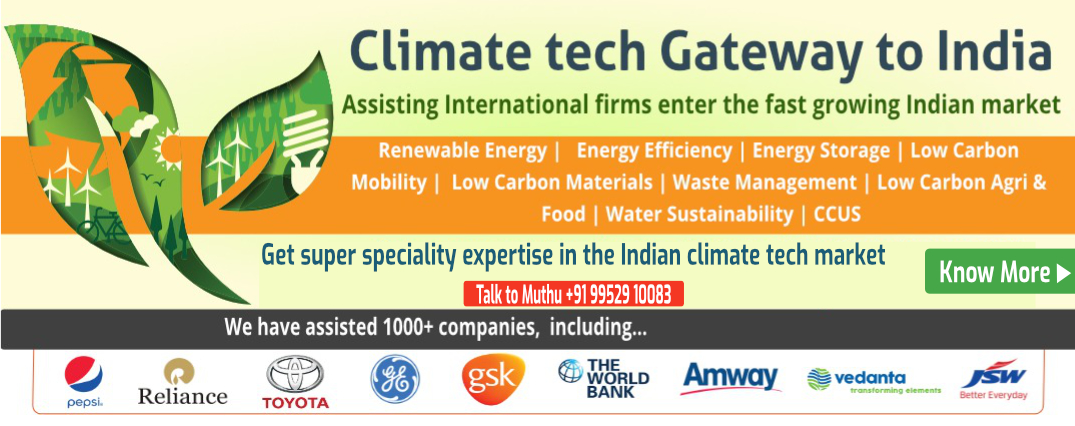This post is a part of Climate G2I Intelligence series from Energy Alternatives India (EAI), India’s leading climate-tech consulting firm.
G2I stands for Gateway 2 India, and provides comprehensive market intelligence and go-to market assistance for International firms entering the Indian climate-tech market. More about Climate G2I from here
The recent announcement of a $300 million joint venture between India’s Adani Group and French energy giant TotalEnergies signifies growing international confidence in India’s rapidly expanding clean energy sector. This investment, adding a massive 1050 MWac of solar power capacity, further positions Adani Green Energy Limited (AGEL) as the world’s largest solar developer. While this deal focuses on solar energy, this is just one indicator of the vast potential for investment and innovation in India’s renewable energy revolution.
Adani Group, one of India’s largest conglomerates, has been deeply committed to aligning its growth with the nation’s sustainability goals. Their focus on renewable energy development, combined with ambitious expansion plans and strong government support, makes them an attractive partner for global players seeking to enter a booming market.
The Adani-Total Energies deal highlights the immense potential of India’s renewable energy sector.
The Indian renewable energy market is expected to reach a value of ₹10.1 trillion (US$132.3 billion) by 2025, according to a report by Statista. The market is expected to grow at a compound annual growth rate (CAGR) of 7.01% from 2024 to 2028.The market is driven by several factors such as
Net Zero by Narsi
Insights and interactions on climate action by Narasimhan Santhanam, Director - EAI
View full playlist- Ambitious targets: India’s pledge to reach 500 GW of renewable capacity by 2030 has set the stage for transformative growth and significant international partnerships.
- Solar surge: Solar power is the fastest-growing renewable source in India, fueled by falling costs and supportive government policies.
- Innovative ecosystem: India is becoming a hub for next-generation green technologies like green hydrogen, furthering its renewable energy ambitions.
Despite its rapid growth, India’s renewable energy sector faces key challenges that need to be addressed like grid modernization, energy storage, and land acquisition.
The Indian government also plays a critical role in supporting the renewable energy sector through initiatives like financial incentives, focus on indigenization, and policies encouraging domestic manufacturing to reduce import dependence, though challenges remain in developing advanced technologies. Additionally, partnerships like Adani-TotalEnergies signify a trend of increasing collaboration between Indian and international companies to accelerate the energy transition.
The Adani-TotalEnergies deal highlights a wave of exciting developments, with India on the path to becoming a global green energy leader. For international businesses seeking to capitalize on this growth trajectory, understanding the market dynamics and partnering with experienced consultants will be crucial to unlocking lasting success in India’s dynamic renewable energy landscape.
This post is a part of Climate G2I Intelligence series from Energy Alternatives India (EAI), India’s leading climate-tech consulting firm.
G2I stands for Gateway 2 India, and provides comprehensive market intelligence and go-to market assistance for International firms entering the Indian climate-tech market. More about Climate G2I from here





 Our specialty focus areas include
Our specialty focus areas include



